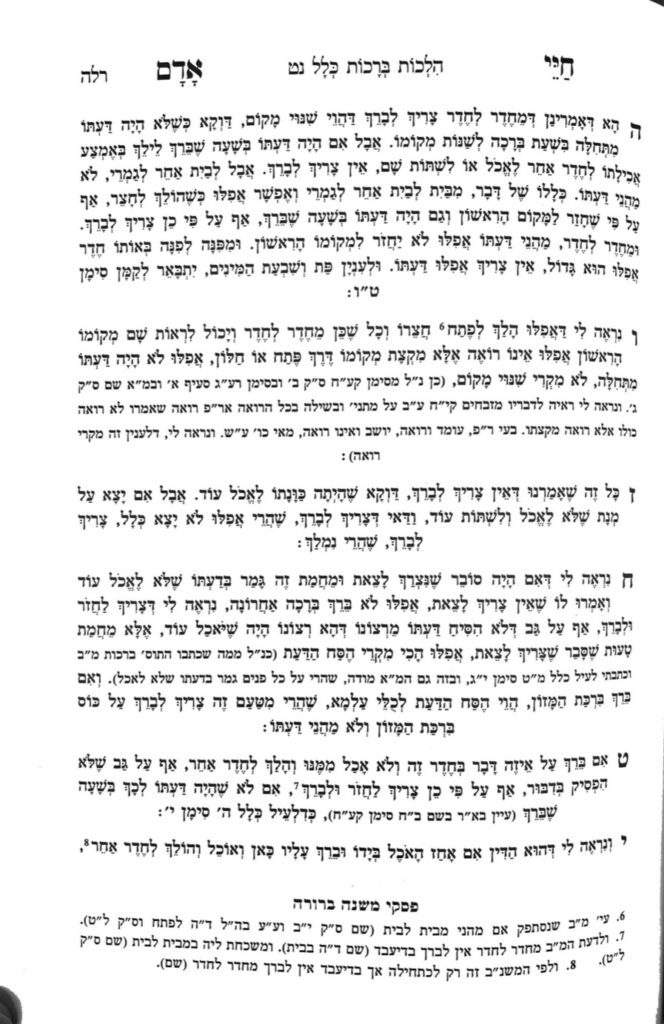We are continuing in siman 8. The Chayei Adam is discussing the halachos of hesech hadaas and how they relate to shinui makom. We have learned that the active decision on the part of the eater to end an eating session creates a hesech hadaas. Even if the decision was based on mistaken information, if an active decision to stop eating was made, one would need to make a new bracha rishona before resuming to eat.
The Chayei Adam next discusses bracha achrona, and how it may also effect a hesech hadaas and require a new bracha rishona.
There are two ways to understand the effect of bracha achrona on the meal. One can understand bracha achrona as inherently ending an eating session. Alternatively, one can understand that the decision to stop eating is manifest through making bracha achrona, but the end to the eating session came about through the active decision of the eater.
The difference between these two understandings is a scenario such as if one planned to eat multiple foods, and made a bracha achrona after eating one of the items (but before finishing to eat) because they were under the mistaken impression that it required an immediate bracha achrona. The Magen Avraham (siman 190 s”k 3) writes that one could continue to eat without making a new bracha rishona, because they intended to continue eating. The Magen Avraham understands the end of the eating session as dependent on the decision of the eater, not on the bracha achrona. However, other achronim disagree, and understand the bracha achrona inherently ends the eating session, so one would need to make a new bracha rishona in such a case.
Rav Akiva Eiger points out that the Magen Avraham’s psak only applies where one truly wishes to continue eating and only makes a bracha achrona due to their mistaken notion. However, if based on their mistaken notion, they made an active decision to end the eating session, even the Magen Avraham would agree that they would need to make a new bracha rishona to continue eating, because, as we learned previously, the active decision to stop eating creates a hesech hadaas.
Rav Akiva Eiger’s case is parallel to the case the Chayei Adam is discussing. The Chayei Adam began the siman discussing a case where, albeit due to a mistake, a person made an active decision to end an eating session. In that case, the need for the new bracha rishona stemmed from the fact that an active decision was made to end the eating session, as it does in the case of Rav Akiva Eiger.
The Chayei Adam continues, and points out that even according to the Magen Avraham, birkas hamazon inherently ends an eating session and creates a hesech hadaas, even if it was recited by mistake. The Chayei Adam proves his point from the fact that when one recites birkas hamazon over a cup of wine, they are demonstrating that they have not yet finished their eating session, as they still plan to consume a cup of wine. Nevertheless, they must make a new bracha rishona on the cup, because birkas hamazon inherently creates a hesech hadaas.
Summary
We have learned three ways to effect the conclusion of an eating session:
- An active decision to stop eating, regardless of the facts upon which the decision was based.
- Leaving the makom where the meal was taking place (see shiurim 1140-1143)
- Birkas hamazon; machlokes regarding other brachos achronos.



